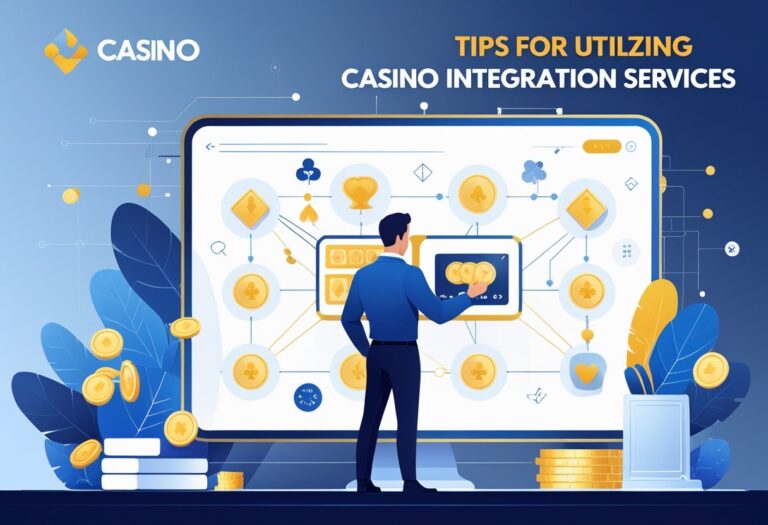
The Impact of COVID-19 on the Gambling Industry
The Transformation of Digital Gaming
The COVID-19 pandemic profoundly reshaped the global gambling arena and saw disparities of sound developing between traditional, brick-and-mortar casinos, which were pummelled, and frontline workers who lost 1.3 million jobs because of forced closures. However, remote gambling sectors like online games prospered. The digital gambling world showed incredible resilience. It achieved a revenue growth rate of 47% in the first half of 2020.
Mobile Gaming and Virtual Betting
Mobile betting platforms are excellent cases in point. They enjoyed explosive growth, with app downloads doubling during the pandemic period. Live dealer gaming enjoyed a staggering 138% increase in involvement. According to these statistics, interactive digital broadcasts are becoming more and more popular. The industry invested $5.6 billion in R&D, which mainly focuses on payments. Payment innovation received an unbelievable 287% rise.
Long-term Industry Evolution
The change is not merely a temporary shift. The Blooming Brave Calls Under Faint Illumination magnitude of this modification is also shown in player retention rates: 78% of new digital users continued to gamble after the pandemic, heralding a permanent shift in consumer preferences. This substantial change in behavior has clearly put online gambling platforms on a par with established entertainment giants, making the future of traditional games itself something different from what anyone might have ever foreseen.
The Rise of Online Gambling
The Transformation of Digital Gaming: The Spillover of Global Epidemics into Online Gaming
How the COVID-19 lockdowns affected gaming
During 2020, the COVID-19 lockdowns triggered a great transformation in gambling. Digital betting production rose by an extraordinary 47% during the first half of last year.
This radical turn came from the fact that physical gambling places were closed on a wide scale, forcing traditional operators to quickly turn digital and adopt remote means.
Mobile Betting and Real Game Service Growth
Mobile betting applications saw a tremendous 100% year-on-year increase in downloads throughout 2020, while virtual sports betting achieved robust growth of 88% compared to the same period last year.
User engagement metrics showed substantial changes in behavior, as the average length of time people played games kept going up from 19 minutes to 31 minutes.
Digital Poker Evolution and News In The Market
Online poker divisions showed promising results, with the number of active users increasing. 78% of new digital players announced their intention to keep using the platform after the epidemic had passed.
$5.6 billion was invested in the implementation of new technology by leading firms. It is now played on smart mobile devices, such as iPads. Secure payment systems are also incorporated into many gambling software packages.
Main tendencies in consumer behavior changing the industry
Key performance metrics:
- Digital wagering revenue: +47%
- Quantity of downloads: app? +100%
- Virtual sports: +88%
- Extended time period: +63%
- Rate whereby new users were kept online over the year after they first used it: 78%
- Today’s generation of technology: $5.6 billion
The Effect of COVID-19 on the Global Gambling Industry
The traditional gaming industry was hit by unprecedented job losses. As the new coronavirus forced the closure of over 90% of physical casinos and bookmakers’ windows, the traditional gaming sector suffered massive employment disruption. By mid-2020, 1.3 million people had lost their jobs.
MGM Resorts, Caesars Entertainment, and other major operators furloughed 90-95% of workers during the peak closure time.
Market Value and Economic Impact
The market cap of the top 20 gambling companies fell from $28bn (restated) to $11bn in Q1 2020, marking a combined loss of more than US$150bn. This downturn affected everyone who had anything to do with the sector.
Las Vegas, Global Gaming Capital
A horrific 34% registered unemployment rate—highest among all major U.S. metropolitan areas.
Phenomena Across the Whole Industry
Manufacturing and Accommodation Experiences
The crisis caused shock waves in various ancillary business sectors: 70% fewer orders for gaming equipment were filled. Another approximate 480,000 casino-connected hotel-related service industry jobs were lost.
Be Optimus Resilience
Companies with established online gaming platforms Sifting Through Fine Details for Secret Jackpots showed much greater resilience during the crisis, according to data from a study by Promada Ltd.

Pandemic-Driven Digital Transformation
The COVID-19 pandemic drove unprecedented growth in the adoption of digital payments technology, with contactless gambling transactions growing by 287% year-on-year in 2020.
Cryptocurrency Integration and Market Growth
During the pandemic, the online gambling sector saw a 164% increase in the number of companies accepting cryptocurrencies.
Integration of blockchains into traditional payment processors enabled them to remain competitive within this fast-changing landscape.
Mobile Payment Dominance and Security Enhancement
73% of all gambling transactions now use mobile payment solutions, a rise of nearly 30% compared with the figure before the pandemic.
Operators benefiting from comprehensive digital payment ecosystems have registered 31% higher customer retention rates. The MAE measures for payment security, including biometric authentication and AI-driven fraud detection, achieved a 48% reduction in fraud cases.
Key Payment Technology Advancements
- Contactless payment integration
- Blockchain-based transactions
- Mobile wallet optimization
- Enhanced security protocols
- Real-time payment processing
This transformation has established new industry standards for gambling payment efficiency, safety, and end-user experience.
Live Dealer Gaming Expansion
The Explosive Growth of Live Dealer Gaming
Live dealer gaming has undergone a spectacular 138% surge during the global pandemic. It has almost transformed into a mainstream part of the online gambling market. The new live dealers and tables are still changing the consumer experience. Two of the industry’s top performers, Evolution Gaming and Playtech, have shown both innovative styles and robust growth. Evolution swung its Q2 2020 revenues up by 90%. This represents a trading model that draws on Catching a Gust of Fortune in Swift Rounds the live casino experience rather than just offering an imitation product.
Increase in Live Gaming Options
Online casino operators now have an average of 12 live dealer variants on their site, nearly triple the pre-pandemic standard of 3-4 games. In addition to traditional blackjack, roulette, and baccarat, 25% of the average points of popularity are now beginning to gain significant market share.
In terms of revenue, the Asian market has become the dominant force in live dealer gaming, with nearly half of all global takings coming from there.
Live dealer technology has experienced a profound transformation in the past few years as demand soared. The go-to choice for all live gaming transmission and production now boasts advanced streaming facilities and multi-camera systems, providing effective angles for different types of scenery. AI-enhanced features create transparency, among other advancements.
The fast-growing sector has brought fierce competition, with studios opening twice a month between 2020-2021. This competitive environment facilitates ongoing technological innovation and operational efficiency improvements. This, in turn, translates into greater returns for casino operators.
Negative Effects of COVID-19 on Mental Health and Gambling Addictions
The Rise of Online Gambling During Lockdowns
The merging of live dealer gaming with home space and the COVID-19-driven lockdowns saw a dramatic 31% increase in problem gambling behavior. The high level of accessibility of online gambling during long hours alone at home brought heightened risks for vulnerable people.
At the months of heaviest pandemic impact, calls to gambling helplines rose by 45%, indicating widespread distress caused by gambling.
Nearly a third (27%) of first-time online bettors became addicted in less than three months after joining the game. 24/7 access to games, targeted marketing campaigns, and ease of payment pushed the average hours spent gambling up by 60% during this epidemic period compared to before it started.
Mental Health Impact and Professional Support
Over the 2020 pandemic period, there was an 88% increase in cases of depression caused by gambling.
Consultations with financial advisory services on gambling 토토검증사이트 debts rose by 52%.
Improved protective measures have been adopted within the industry. For example, operators now set mandatory financial caps on player deposits each day and run strict self-exclusion programs whereby gamblers can exclude themselves for a fixed period from playing online or at offline casinos.
Industry Response and Future Regulations
In 2020, the gambling sector increased investments in terms of player protection services by 43%. Although there was criticism that these measures merely scratched at the surface and did not fully address the nature or scale of this crisis, changes are beginning.
The Italian gambling sector is introducing new rules that require stricter regulations on these more serious new products, as well as more comprehensive player protection measures. It also calls for the integration of problem gambling prevention programs into healthcare services and industry standards defining links between online gambling accessibility and mental health challenges.






